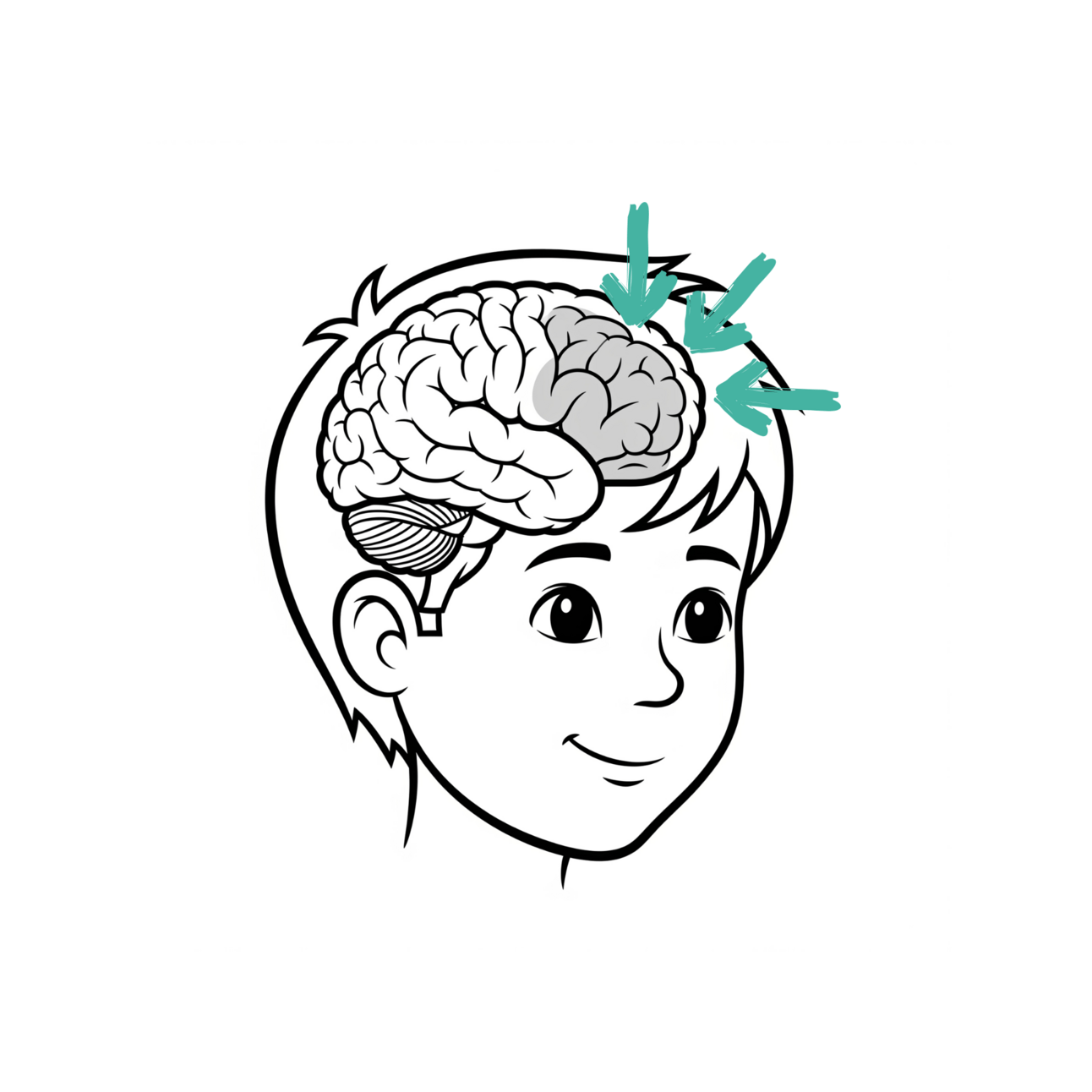Lately, my six-year-old has developed what I can only describe as selective hearing — particularly when it comes to the rules that matter most. Like, say, don’t run into the street or stay where I can see you.
Tiny things, right?
We’ve had long talks, repeated reminders, and even laid out clear consequences. And yet, the moment we leave school, he’s off like a shot, racing ahead with his friend — completely forgetting the whole conversation from literally the day before.
I know some of it is age. Six is a funny in-between: old enough to crave independence, still too young to fully understand the weight of consequence. He’s not being defiant so much as he’s being impulsive — and his brain just isn’t fully wired for long-term thinking yet.
That’s not a metaphor. It’s biology.

The prefrontal cortex, the part of the brain responsible for impulse control, decision-making, and evaluating risk, is still very much under construction. Especially in younger kids. Which means they often know the rule — and break it anyway. Not because they don’t care, but because their brain hasn’t quite learned how to pause before acting.
And when summer hits?
Everything gets more chaotic. More unstructured. More opportunity for impulsive choices and “I forgot” moments.
🧠 So here’s what we’re doing (again):
We had our son help create a new version of his behavior and safety chart — this time, Minecraft-themed.
The hope is that giving him a role in building it (and connecting it to something he loves) will help the habits stick a little better. If we can reinforce routines and help him feel ownership, maybe remembering the rules becomes just a little easier.
Because it’s not about disrespect. It’s about development.
And while I wish I could fast-forward to the part where he listens the first time… I’m learning that parenting is mostly about playing the long game.

✅ The Summer Safety Rules We’ll Be Repeating (On Loop)
🌊 Water
Stay where a grown-up can see you, not just hear you.
Life jackets on boats and docks. No debates.
Empty the kiddie pool when you're done — every time.
☀️ Heat & Sun
Sunscreen. Even if it’s cloudy. Even if it’s “just for a minute.”
Hydrate. Even if they swear they’re not thirsty.
Take shade breaks. Your skin (and mood) will thank you.
🚲 Outdoor Play
Helmets every time. No exceptions.
Stop, look, and listen before crossing any street or driveway.
Do the hand test before sliding — hot playgrounds can burn.
🐝 Nature
Shoes stay on. Yes, even in the backyard.
Tick checks after hikes or tall grass play.
We admire bees and wasps from afar — no poking the buzzies.
🚗 Stranger Safety
We don’t go with anyone unless they know the family password.
We talk about tricky people, not just “strangers.”
Always check in before walking off in public places.
📱 Screen Time
Summer often means more screen time — review the rules.
No private chats, no secret downloads.
Shared spaces. Open screens. Boundaries matter online, too.
🚦 Consequences Are Mandatory — But So Is Flexibility
As much as we talk about teaching and modeling, let’s be real: consequences still matter.
They reinforce the seriousness of a boundary — especially when safety is on the line.
In our house, we’ve taken away bikes, scooters, even morning walks with friends after a rule was broken. Not as punishment, but as a natural result:
If we can’t trust you to follow the rules, we can’t give you the freedom that depends on them.
But here’s the tricky part: consequences have to be age-appropriate — and they have to make sense in the moment.
Summer throws a wrench into things.
What happens when a rule is broken during a family trip? Or at camp? Or when other kids are involved?
You can’t always cancel the activity. Sometimes you have to get creative.
Here’s what that looks like for us:
Loss of independence: “You don’t walk ahead anymore. You stay with me.”
Natural consequences: “You didn’t put on sunscreen when asked, so now we’re taking a break instead of swimming.”
Repair conversations: “What happened? What can we do differently next time?” Let them offer a solution — it helps build that decision-making muscle.
There’s no one-size-fits-all approach. But there should always be a response.
Not out of anger — out of consistency. Because if a boundary only matters sometimes, it stops being a boundary at all.
💛 One Last Thing...
If this all feels like a lot — that’s because it is.
Repeating the rules. Adjusting the consequences. Staying calm when your kid sprints toward traffic again.
It’s emotional labor. It’s mental load. And in the summer, when routines melt and tempers rise with the temperature, it can feel like you’re doing it on hard mode.
So here’s your reminder:
🌀 You’re not failing because you have to repeat yourself.
🧠 You’re not overreacting for enforcing safety rules.
🪴 You’re not too strict for holding a boundary.
💛 And you’re not alone if your kid “forgets” the same rule three days in a row.
You’re parenting a still-developing brain with love, consistency, and consequences that teach — not shame.
You’re doing enough.
Even if it doesn’t feel like it yet — the lessons are sinking in.
Talk soon,
Tara
CEO of Chaos & Co.